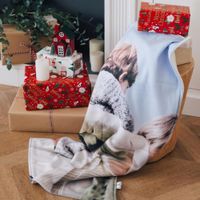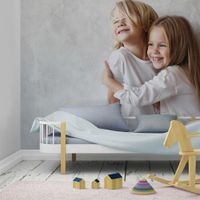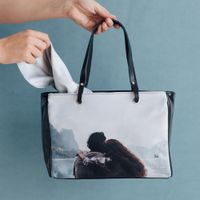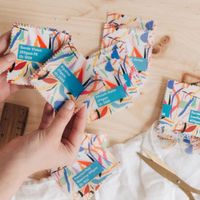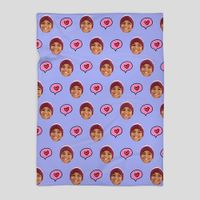Examples of Label Do's and Don't's

Keep your label design clean and bold.
Do not use font sizes under 10pt.
Do not use lightweight or fine fonts.
Keep in mind the label size you are producing.
Small labels only have room for a logo.
For care labels with lots of instruction text choose one of our larger labels. To get the best labels here are some tips!
Install your Clock Mechanism

You should be able to install your clock mechanism and hands easily enough with the card provided in your package however if you run into trouble or the card is missing, please follow these instructions
1.
Content: Mechanism /
small hand / middle hand and long hand / one battery
2.
Peel the plastic
film of all the hands (if there is plastic on it)
3.
Add the small hand,
black side upwards
4.
Add the middle hand,
black side upwards
5.
Add the long hand,
black side upwards
6.
Ensure hands are not
touching (delicately correct with your finger if so)
7.
Add the battery at
the end
Stitching Patterns

Our max. print width is 59", this means larger items such as duvet covers and bed sheets will be pressed in separate panels before they are stitched together by our seamstresses. We are aware that every design, every photograph will be different, so we have created 4 stitch patterns to select from. Do make sure to choose the one that best compliments your design.
Also please keep in mind that when putting together and stitching the pieces, there may be some margin of mismatch or some slight loss of image across the seams. We do our best to minimize this.
When uploading images of people or adding text, do avoid important elements like faces or letters crossing the seam lines, as these will be challenging to align accurately.
How to Fill your Lighter & Replace the Flint

WARNINGS:
- Refilling with fluid should be carried out in a well ventilated area on a non-flammable surface.
- Ensure your lighter is completely cool before disassembling.
- Do not allow children access to or use of a lighter.
- Only use appropriate lighter fuel. Petrol, white spirit or methylated spirits should not be used.
- Lighter fuel should be stored in a cool dark cupboard away from the reach of children.
- Do not overfill your lighter with lighter fluid.
- Do not allow your lighter to remain burning for more than 30 seconds, to avoid the casing overheating and causing burns.
- Use carefully and responsibly.
To fill your lighter with lighter fluid.
1: Remove the case. Open the lid, firmly grasp the windcover, and pull the lighter from its case. Put the cover to one side.
2: Turn the lighter upside down, use a paperclip to lift the felt covering the cotton wadding.
3: Slowly and carefully pour in lighter fluid. When the fluid is visible at the top of the wadding stop filling. Wait for 10 seconds, then repeat. When the cotton remains saturated your lighter is full. If fluid drips out of the bottom you have put too much fluid in. Leave lighter on an in-flammable surface and allow excess fuel to evaporate for 5 minutes.
4: Push the lighter back into its case, ensuring it is fully inserted. Wipe the lighter and your hands to remove any excess fluid.
5: Allow your lighter to sit for 2-3 minutes with the lid open. DO NOT STRIKE A LIGHT. This allows any excess lighter fluid on the outside of the case to evaporate.
6: Test your lighter is working by striking the thumb wheel.
To replace the flint in your lighter.
1: Remove the case. Open the lid, firmly grasp the windcover and pull the lighter from its case. Put the cover to one side.
2: Turn the lighter upside down. Using a small flathead screwdriver unscrew the brass screw counterclockwise.
3: Remove the screw head with attached spring. Turn the lighter upside down and tap on the top to remove any remaining flint material.
4: Drop a new flint into the tube. Re-insert the spring and tighten clockwise. Do not over-tighten the screw.
TIP: a spare flint or two can stored underneath the felt.

